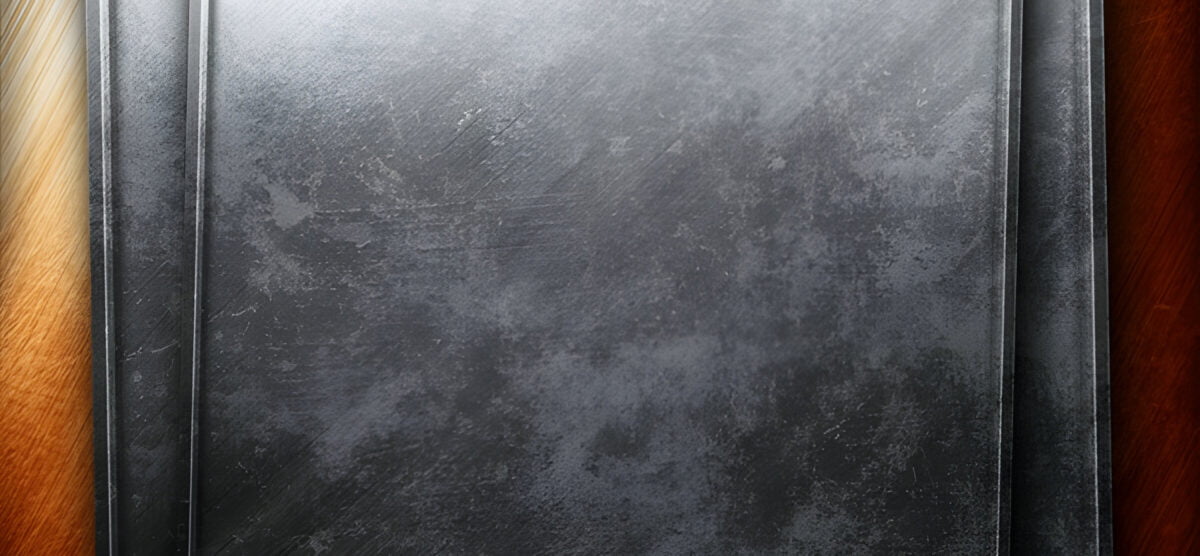Blogs

Exploring the Versatile Uses of Titanium Copper Alloy in Industry
In the rapidly advancing world of technology and industry, Titanium Copper Alloy Use stands out as a game-changer. Known for its superior properties and versatility, this alloy has become an essential material in various sectors. Whether it’s for electronics, automotive, or construction, understanding the Titanium Copper Alloy Use can unlock numerous benefits for modern applications.
Understanding Titanium Copper Alloy
Titanium Copper Alloy is a unique blend of copper with titanium as the primary additive element. This combination results in a material that boasts high strength, excellent stress relaxation resistance, and remarkable bend formability. Unlike other copper alloys, such as beryllium copper, Titanium Copper Alloy offers enhanced properties that make it ideal for high-performance applications. Its exceptional characteristics enable it to meet the demanding requirements of various industrial applications, providing solutions that other materials cannot match.
Key Properties of Titanium Copper Alloy
The Titanium Copper Alloy properties make it highly sought after in multiple industries. Some of the key properties include:
- High Strength: Titanium Copper Alloy is renowned for its high tensile strength, which ensures durability and long-lasting performance in demanding applications. This strength is essential for components that need to withstand significant mechanical stresses without deforming or failing.
- Stress Relaxation Resistance: One of the standout properties of Titanium Copper Alloy is its resistance to stress relaxation. This means that when used in applications where sustained loads are applied, such as in electrical connectors, the alloy maintains its integrity and performance over time.
- Bend Formability: The alloy’s excellent bend formability allows it to be easily shaped into various forms without compromising its structural integrity. This property is particularly useful in manufacturing processes where precise and intricate shapes are required.
- Electrical Conductivity: Titanium Copper Alloy also offers good electrical conductivity, making it suitable for electrical and electronic applications. Its ability to conduct electricity efficiently is vital for components like connectors and switches.
- Corrosion Resistance: In environments where corrosion is a concern, Titanium Copper Alloy stands out due to its excellent corrosion resistance. This property ensures that components made from this alloy can withstand harsh conditions without deteriorating, thus extending their service life.
Applications of Titanium Copper Alloy
The applications of Titanium Copper Alloy span across multiple industries, reflecting its versatility and reliability.
Electronics and Technology
In the electronics industry, Titanium Copper Alloy Use is widespread. Its high strength and excellent stress relaxation resistance make it perfect for connectors, camera modules, and switches. These components are critical in devices like smartphones and personal computers, where reliability and durability are paramount. The alloy’s properties ensure that these devices can withstand everyday wear and tear, providing consistent performance over time.
Automotive Industry
The automotive sector heavily relies on Titanium Copper Alloy Use for various components. It is widely used in automotive connectors and other critical parts due to its enhanced strength and formability. This ensures that automotive components remain durable and efficient under various conditions, contributing to the overall safety and performance of vehicles. The alloy’s ability to withstand high temperatures and mechanical stresses makes it an ideal choice for demanding automotive applications.
Construction and Architecture
In the construction and architecture industries, the uses of Titanium Copper Alloy are notable. Its potential as a roofing material is particularly significant due to its corrosion resistance and longevity. Roofing materials made from Titanium Copper Alloy not only offer a long service life but also require minimal maintenance, making them a cost-effective solution for buildings. Additionally, the alloy is environmentally friendly and recyclable, making it an excellent choice for sustainable building practices. Buildings with roofs made from this alloy can benefit from reduced maintenance costs and a lower environmental footprint.
Titanium Copper Alloy’s Role in Modern Industries
The Titanium Copper Alloy Use has revolutionized various industries, offering a blend of strength, durability, and versatility. This alloy’s impact is profound, particularly in sectors where material performance is critical. Understanding how Titanium Copper Alloy contributes to different industries provides insights into its widespread adoption and future potential.
Electronics Industry: A Detailed Analysis
In the electronics industry, Titanium Copper Alloy Use has become integral to the development and manufacturing of high-performance devices. Its properties, such as high strength and excellent stress relaxation resistance, are vital for creating durable and reliable components. For instance, connectors made from Titanium Copper Alloy maintain their integrity under continuous use, ensuring stable electrical connections in devices like smartphones, tablets, and laptops. Additionally, the alloy’s excellent formability allows for the production of intricate parts required in advanced electronic systems.
Key Benefits in Electronics:
- Durability: Ensures long-lasting performance of electronic components.
- Reliability: Maintains electrical integrity under prolonged stress.
- Precision: Allows for the creation of finely detailed parts.
Automotive Industry: Enhancing Vehicle Performance
The Titanium Copper Alloy Use in the automotive industry addresses several critical challenges. Automotive components, such as connectors and structural parts, demand materials that can withstand harsh conditions and mechanical stresses. Titanium Copper Alloy meets these requirements with its high strength and formability. This makes it ideal for manufacturing durable automotive parts that contribute to overall vehicle safety and performance. Moreover, its resistance to corrosion ensures longevity, reducing the need for frequent replacements and maintenance.
Key Benefits in Automotive:
- Strength: Supports the creation of robust and reliable automotive parts.
- Longevity: Resists corrosion, ensuring a longer lifespan for components.
- Efficiency: Enhances vehicle performance by maintaining part integrity under stress.
Construction and Architecture: Building for the Future
The construction and architecture industries have also embraced the Titanium Copper Alloy Use due to its remarkable properties. Roofing materials made from this alloy not only provide structural integrity but also enhance the aesthetic appeal of buildings. The alloy’s corrosion resistance ensures that roofs remain in good condition for decades, even in harsh environments. Additionally, its recyclability aligns with sustainable building practices, making Titanium Copper Alloy an environmentally friendly choice for modern construction projects.
Key Benefits in Construction:
- Aesthetic Appeal: Offers a sleek and modern look for building exteriors.
- Durability: Provides long-lasting protection against environmental factors.
- Sustainability: Supports eco-friendly construction through recyclability.
Advances in Manufacturing Techniques
Recent advances in manufacturing techniques have further expanded the Titanium Copper Alloy Use. Innovations in processing and fabrication have made it easier to produce components with high precision and consistency. Techniques such as additive manufacturing and advanced forming processes allow for the creation of complex parts that were previously difficult to achieve. These advancements have broadened the alloy’s applicability, enabling its use in cutting-edge technologies and industries.
Key Advances in Manufacturing:
- Additive Manufacturing: Allows for the precise creation of complex components.
- Advanced Forming Processes: Improves the consistency and quality of parts.
- Innovative Fabrication: Expands the range of applications for Titanium Copper Alloy.
Environmental and Economic Impact
The Titanium Copper Alloy Use has significant environmental and economic implications. Its recyclability reduces waste and supports sustainable practices, aligning with global efforts to minimize environmental impact. Economically, the alloy’s durability and low maintenance requirements translate to cost savings for industries. By reducing the need for frequent replacements and repairs, Titanium Copper Alloy helps businesses lower operational costs and improve overall efficiency.
Key Environmental and Economic Benefits:
- Recyclability: Supports sustainability by reducing waste.
- Cost Savings: Lowering maintenance and replacement costs.
- Efficiency: Enhances operational efficiency through durable components.
Comparing Titanium Copper Alloy with Other Alloys
When compared to other alloys, such as beryllium copper, Titanium Copper Alloy exhibits superior properties. It offers higher strength, better stress relaxation resistance, and superior bend formability. These advantages make it a more suitable choice for applications where performance and reliability are critical. While beryllium copper also has its uses, Titanium Copper Alloy’s enhanced characteristics provide an edge in more demanding applications.
Future Prospects and Developments
The future of Titanium Copper Alloy Use looks promising with ongoing research and development. Innovations are expected to unlock new applications and improve existing ones. As industries continue to evolve, the demand for materials with such exceptional properties will only grow. Researchers are exploring ways to enhance the alloy’s properties further, making it even more versatile and efficient. These advancements could lead to new applications in fields such as aerospace, medical devices, and renewable energy.
Conclusion
In conclusion, the Titanium Copper Alloy Use in various industries highlights its unmatched versatility and reliability. From electronics to construction, its superior properties offer significant advantages. Industries should explore the potential of Titanium Copper Alloy to enhance their products and processes. For more information and to delve deeper into its applications, feel free to reach out or explore further resources. Embracing Titanium Copper Alloy can lead to improved performance, longevity, and sustainability in numerous applications.
Frequently Asked Questions
Q1. What is Titanium Copper Alloy?
Titanium Copper Alloy is a copper alloy with titanium as the primary additive, known for its high strength and excellent properties.
Q2. What are the primary applications of Titanium Copper Alloy?
It is used in electronics, automotive, construction, and various other industries due to its superior properties.
Q3. How does Titanium Copper Alloy compare to Beryllium Copper Alloy?
Titanium Copper Alloy offers higher strength, better stress relaxation resistance, and superior bend formability compared to beryllium copper alloy.
Q4. What makes Titanium Copper Alloy environmentally friendly?
Its recyclability and long-lasting properties make it an ideal choice for sustainable applications.
Q5. Why is Titanium Copper Alloy preferred in the electronics industry?
Its high strength and stress relaxation resistance make it perfect for connectors and switches in electronic devices.
Q6. Can Titanium Copper Alloy be used in construction?
Yes, its corrosion resistance and longevity make it suitable for roofing materials and other architectural applications.
Q7. What are the future prospects of Titanium Copper Alloy?
Ongoing research and development are expected to unlock new applications and improve existing ones, making it even more valuable in the future.
Q8. Where can I learn more about Titanium Copper Alloy?
For more detailed information, you can explore resources from Advanced Refractory Metals (ARM) or reach out to industry experts.
🔗 Discover more on our website https://domadia.net/contact/




